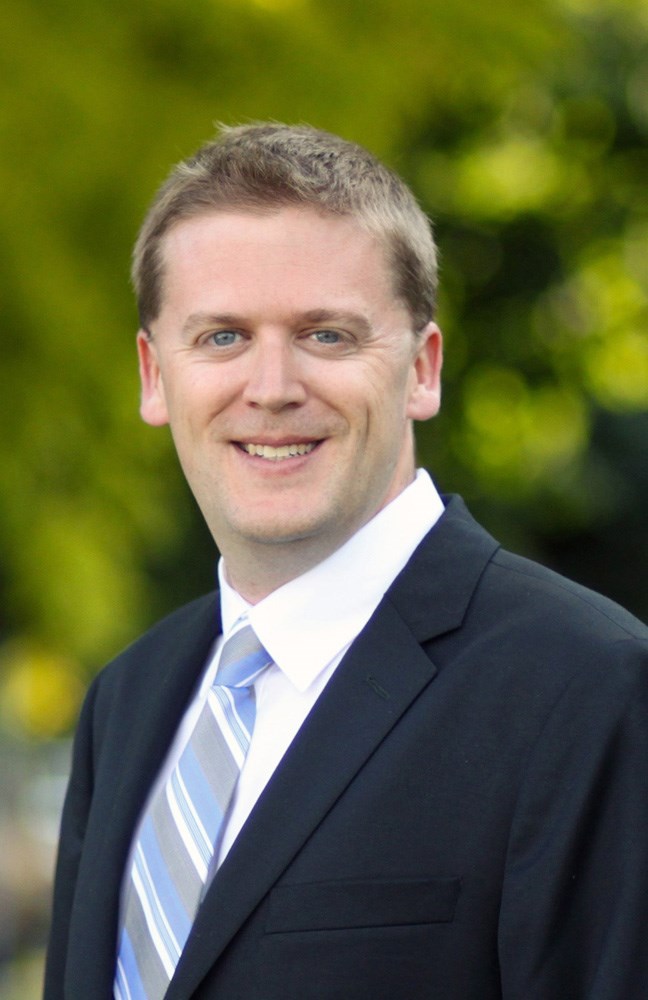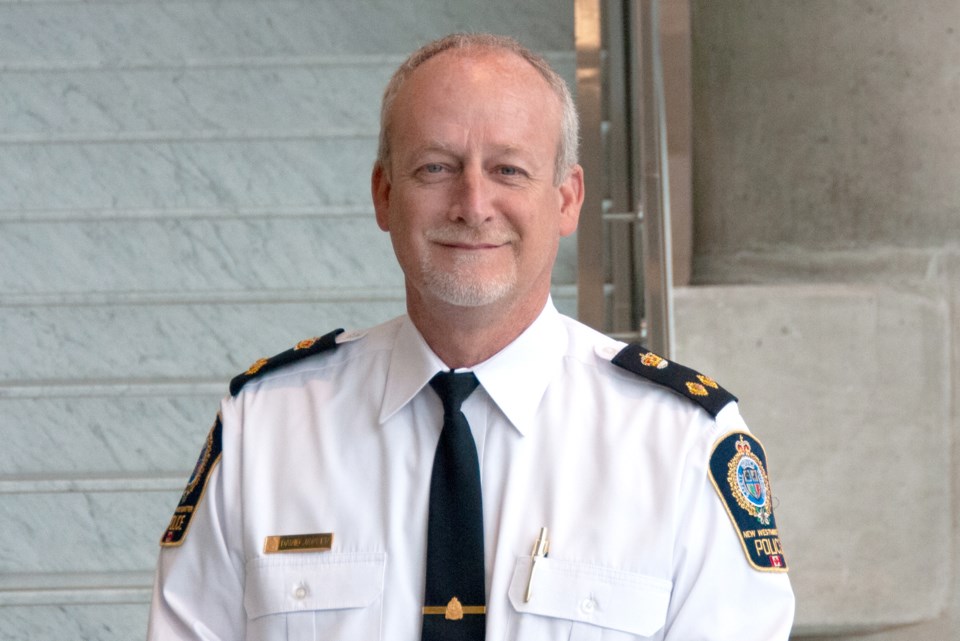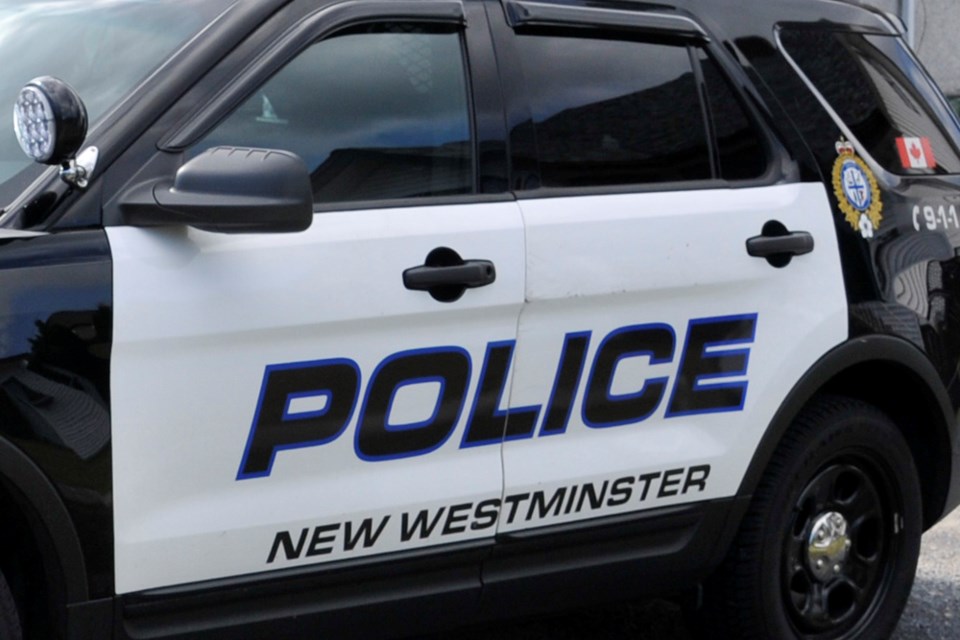New Westminster is among the cities contemplating potential changes to policing.
Concerns about use of force and institutionalized racism have soared in recent weeks, following a series of police-related deaths of Black and Indigenous people in the United States and Canada.
“I think communities all across North America and all across the world are having a discussion and conversations about the future of policing,” said Mayor Jonathan Cote, chair of the New Westminster police board. “No doubt, I think we in New Westminster are going to have a discussion about the future of policing.”
New Westminster is among the B.C. municipalities served by its own police force, rather than the RCMP. While the chief constable and the senior management team are responsible for the day-to-day management and operation of the police department, the New Westminster police board provides oversight and direction to the police department to ensure it’s acting in accordance with the Police Act. The board also works with the police department to develop a strategic plan, an annual plan/budget and policies.
Cote said the police department will be presenting the board with a report and overview of current practices and policies related to many of the questions being raised about policing, including police oversight, at the police board’s June 30 meeting.
“I’m also going to be making room for the police board to have its own discussion about what directions and recommendations do we want to put forward to the department to be taking a deeper look into reforms and changes to policing in the city,” he said.
Cote said he is getting a lot of emails from residents about policing.
“I think it’s a very topical issue all around the world, and people are focusing, for good reason, a lot of attention, and having discussions about policing in a new way,” he told the Record. “I know myself and the chief of police are getting lots of questions and lots of feedback and encouragement to really take a deep look at how we deliver policing and what the role of policing really should be in our community. I think policing has evolved quite a bit over the decades, and evolved for the better. I think the conversations we are having right now have really highlighted that that change has been slow, and we might need to look at more dramatic and significant changes.”
The wrong fit?
Some members of the New Westminster Police Department would likely agree that the types of calls they are responding to might not necessarily be the “right fit” for police officers, Cote said.

“They are often the last resort, the only one available to be called,” he said. “I think it really begs a larger question – how do we as a system deal with a whole host of health, social inequalities in our society and maybe police, who are right now on the front lines and the last-call resort for a lot of these complex social issues, may not be the best way of dealing with those as a community and as a society. I think there is a really important conversation to be had.”
Through the years, the New Westminster Police Department has initiated some programs to deal with gaps in services.
“I would say the New West police department has definitely evolved over the years. A number of years ago, we brought in a specifically trained officer to deal with mental health,” Cote said. “We have a long history in the city with partnering with health professionals and counsellors, with issues like domestic abuse.”
Cote noted the New Westminster Police Department is currently working on a pilot related to sexual assault files, where counsellors will play a more prominent role in the handling of those files.
“I think the police department has already been aware of this dynamic of different ways of dealing with these issues that don’t necessarily involve police being the right first point of call with some of these issues,” he said. “I guess the question will be: do we have to go a lot further and make some more significant steps than we have in the past?”
Defund the police?
According to the City of New Westminster’s 2020 budget, policing is the most costly service in the city’s operating budget, representing $31.6 million of the $135 million budgeted for general services.
In response to the May 25 killing of George Floyd, a Black man in Minneapolis, by a white police officer, rallies and protests have been held across North America, with many people calling for defunding of police departments.
For some, that means abolishing police departments and developing a new form of public safety, but for others it means reallocating some funds away from police departments towards social services, health services and community resources in an effort to eliminate police brutality and racial inequality.
“I definitely think there is an opportunity to look at shifting funding to different ways to provide care and to provide services to the community beyond policing,” Cote said. “Could you eliminate policing completely? I don’t think so.”
The key, said Cote, is to ensure supports are in place if police step away from addressing specific areas in the community.
“You need to have the social supports, you need to have the health-care professionals to do that. Those two have to be connected,” he said. “I think we, as a community, in New Westminster would be really well-served to have that conversation, but they have to be connected. We can’t just defund the police and then have no one available at three in the morning when a crisis is emerging.”
Making changes
As one of 11 B.C. communities with its own police force, is New Westminster in a better position to respond to calls for police reforms?
“Having our own police force will certainly give us a lot more autonomy to have these kinds of conversations in our community, compared to a community that is maybe served by the RCMP,” Cote said. “I think the cities that do have their own individual police departments will have a lot more discussion and ability to dig a little bit deeper, and potentially even find unique partnerships with other communities, or unique partnerships with the provincial government, to even test out new ways of even looking at policing.”
Cote expects the June 30 police board meeting to be the beginning of a “really good, genuine discussion” about policing in New Westminster.
“No doubt we are going to want to connect with the community. Particularly, members of the community that are marginalized or more likely to be discriminated (against) have to be a part of this conversation,” he said. “We know there are segments of the population that are over-policed and under-protected by police services. I think that’s a population that genuinely has to be a part of this discussion.”
New chief at the helm

On June 9, the city announced that Dave Jansen had been appointed as the New Westminster Police Department’s new chief constable, after serving as acting chief for the past year.
“The police board has been really impressed with the work he’s done,” Cote said. “It’s been a challenging year, and he’s done a very good job in showing leadership. I think the board was really impressed through this recruitment process with how Dave has really demonstrated a really important ability to be able to listen – listen to the board, listen to the community, listen to the New Westminster Police Department members – as part of his leadership style. That is something that we were really looking for as we moved through these challenging times with policing. We thought that style of leadership would really serve our community at this point in time.”
Cote said there was a national search for a new police chief and the police board interviewed four “really good” candidates, ultimately selecting Jansen. In addition to working his entire policing career at the New Westminster Police Department, Jansen lives in New West.
“Even if you do want to have a difficult discussion about reforming the police, having leadership that really understands the community, understands the department and how it has evolved over the past couple of decades is important,” Cote said. “From the board’s perspective, the leadership style that Dave Jansen has – really being a listener and a community-builder – was so important to us. Some leaders are more directive and authoritarian, but I don’t think that would have been the type of leadership that would have served the department well at this time. That’s not been the career of Dave Jansen or the experience that we have had with him, and one of the key factors in the board feeling really comfortable in promoting Dave Jansen to this position.”



